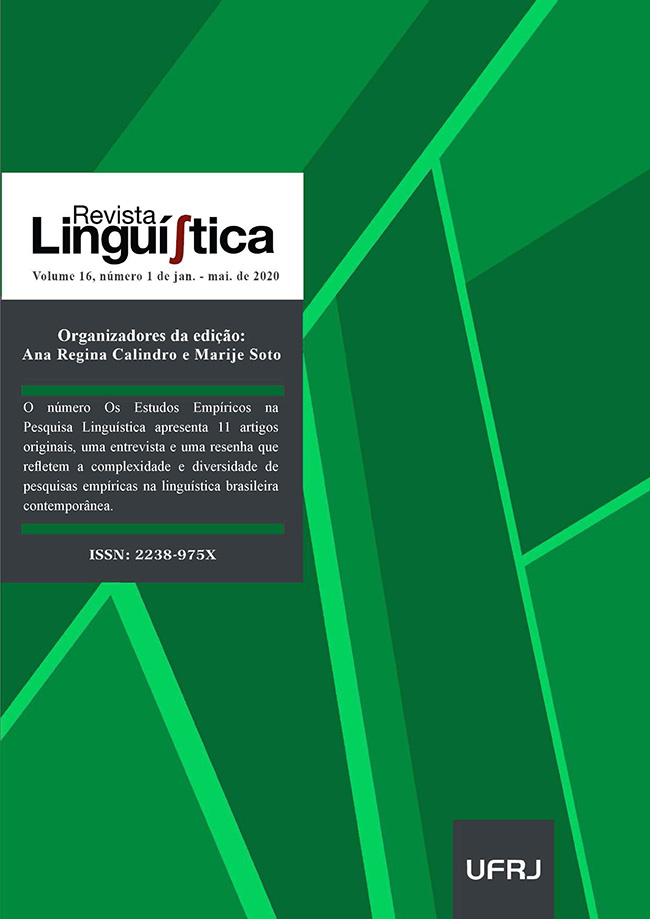Lexical and orthographic variables in the lexical access of words in Brazilian Portuguese
DOI:
https://doi.org/10.31513/linguistica.2020.v16n1a31539Keywords:
Psycholinguistics, Lexical Access, Word Recognition, Mental Lexicon, Lexical Decision.Abstract
Which variables influence lexical access in Brazilian Portuguese? The present work aimed to analyze the influence of the main lexical and orthographic variables on lexical access: a. lexical frequency, b. orthographic neighborhood, c. grammatical category, d. number of letters, and e. number of syllables. Dual-route models of reading postulate different routes for lexical and orthographic processing, in which these variables differently influence the stages of word processing. Therefore, for a better understanding of the mental lexicon, the influences of these variables should be analyzed in Brazilian Portuguese. To this end, it was applied a psycholinguistic experiment with a lexical decision task in visual modality between words and pseudowords selected and created from the Brazilian Portuguese Lexicon. The results showed the following significant differences: words were recognized faster than pseudowords; high-frequency words were recognized faster than medium-frequency words, which were recognized faster than low-frequency words; high orthographic neighborhood words were recognized faster than low orthographic neighborhood words. These results suggest that these variables influence word processing in lexical access. Furthermore, the results of the variables number of letters and number of syllables indicate gradual effects on word recognition. Thus, the present investigation contributes to a better understanding of reading processes during lexical access, as well as, validate the selection, creation, and control of stimuli with the use of corpora in experimental psycholinguistic research in Brazilian Portuguese.
Downloads
Additional Files
Published
Issue
Section
License
Authors who publish in the Revista Linguí∫tica agree with the following terms:
The authors maintain their rights, ceding to the journal the right to first publication of the article, simultaneously submitted to a Creative Commons license permitting the sharing with third-parties of published content as long as it mentions the author and its first publication in the Revista Linguí∫tica.
Authors may enter into additional agreements for the non-exclusive distribution of their published work (for example, posting in online institutional or non-profit repositories, or book chapters) so long as they acknowledge its initial publication in the Revista Linguí∫tica.

The journal Revista Linguí∫tica is published by the Post-Graduate program in Linguistics of UFRJ and employs a Creative Commons - Attribution-NonCommercial 4.0 International (CC-BY-NC).









